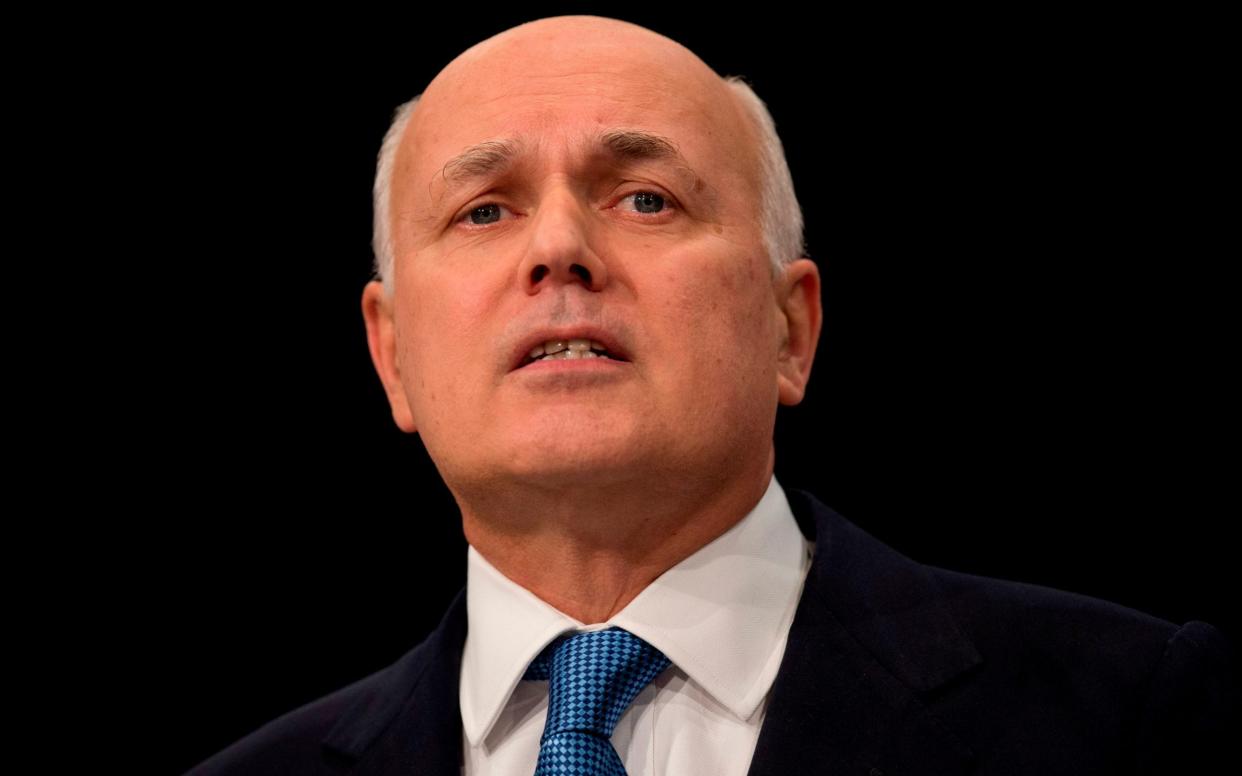Raab says Chinese government 'sanctions its critics' as UK MPs banned over Xinjiang

Britain said on Friday that China was targeting critics with sanctions and called on Beijing to allow international access to Xinjiang to verify the truth about human rights abuses in the province.
"It speaks volumes that, while the UK joins the international community in sanctioning those responsible for human rights abuses, the Chinese government sanctions its critics," Foreign Secretary Dominic Raab said in a statement.
"If Beijing want to credibly rebut claims of human rights abuses in Xinjiang, it should allow the UN High Commissioner for Human Rights full access to verify the truth."
China has sanctioned nine individuals and four organisations in the UK in retaliation after Britain imposed sanctions earlier this week on Chinese officials for human rights abuses in Xinjiang.
The Chinese foreign ministry said it sanctioned Sir Iain Duncan Smith, the former Conservative Party leader, along with MPs Tom Tugendhat, chair of the foreign affairs select committee, Lord Alton, Neil O’Brien, Tim Loughton and Nusrat Ghani.
China also sanctioned Baroness Helena Kennedy, barrister Geoffrey Nice, chair of the Uighur Tribunal investigating human rights abuses in Xinjiang, China academic Jo Smith Finley, as well as China Research Group, the Conservative Party Human Rights Commission, Essex Court Chambers, and the Uighur Tribunal.
Targeted individuals and their immediate family members are prohibited from entering Chinese territory, any property assets in China will be frozen, and Chinese citizens and institutions are barred from doing business with them.
Sir Iain said he viewed the sanction as a "badge of honour".
It’s our duty to call out the Chinese Govt’s human rights abuse in #HongKong & the genocide of the #Uyghurs. Those of us who live free lives under the rule of law must speak for those who have no voice. If that brings the anger of China down on me, I’ll wear that badge of honour. pic.twitter.com/kLqgd6Krpy
— Iain Duncan Smith MP (@MPIainDS) March 26, 2021
China is hitting back after a coordinated set of sanctions were imposed by the UK, US, EU and Canada on Monday against Beijing over human rights violations against the Uighurs and other Muslim minorities in Xinjiang.
The UK was expecting a response from China, as Beijing had immediately applied retaliatory sanctions against the EU, and summoned ambassadors to complain.
In Friday’s announcement, the Chinese foreign ministry again blasted the UK for imposing sanctions over the “so-called human rights issue in Xinjiang,” a move that was “based on nothing but lies and disinformation.”
Activists and UN rights experts estimate at least one million people have been detained in camps in Xinjiang.
An ongoing Telegraph investigation has revealed chilling abuses inside the internment camps, where former detainees recounted being forced to undergo body cavity searches, solitary confinement, repeated interrogations and political ‘re-education.’
Many were forced to swallow unmarked pills or were injected with unknown substances that they feared made them sterile. Physical torture was rampant, with detainees electrocuted via cattle prods and beaten repeatedly.
One woman sustained lasting injuries to her uterus after a guard with heavy, metal-tipped boots kicked her repeatedly in the stomach. Former detainees have also told the Telegraph of being bused daily to a factory, where they were forced to produce gloves in squalid conditions.
China has repeatedly denied all allegations of abuse, with government officials and propaganda in state media claiming the camps were for vocational training, and that Xinjiang was a “happy” place.
As Britain announced sanctions this week, Sir Iain said that ultimately the “buck stops” with Xi Jinping, the leader of China, over the abuse of Uighurs and Tibetans.
Sir Iain is urging the House of Commons to support on Monday a Lords amendment to a trade bill which opens the way for China and other transgressors to be called to account for acts of genocide.
Writing in the Telegraph, he said it would “send a signal not just to the Chinese government but to those who labour under this terrible oppression that the free world recognises their struggle.”
“Genocide is the crime of all crimes and the UK must offer a beacon of hope to those who suffer,” he wrote.
So far this year, US, Canada and the Netherlands have decided that Beijing’s actions in the region amounted to genocide, and more Western governments are assessing whether to make the same determination.

